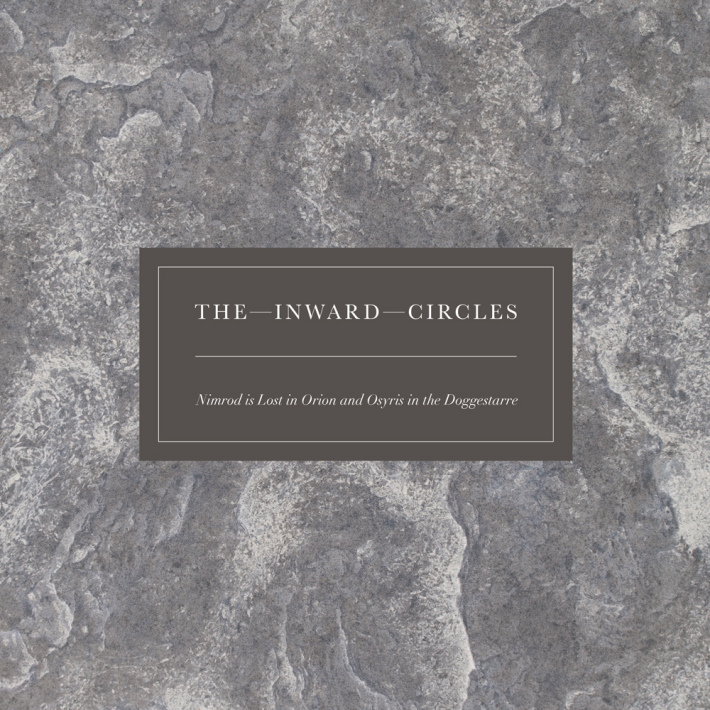Behind these enigmatic project and album title lies Richard Skelton, a man who has emerged over the last few years as one of the UK’s most exciting and reliable modern composers. I’m generally wary of the term "psychogeography" with regard to music, but Skelton is the exception to my unscientific rule, because his elegant string compositions, in which he builds up layers of atmospheric drones (many recorded outdoors), manage to convey such a potent sense of place (barren Lancashire moors, rugged Irish coastlines, the epic landscapes of the Lake District) that to delve into them is to be transported. Skelton’s music is so organic, you can almost smell rain and feel gusts of wind on your skin whilst listening to and album like Landings.
The fact that a name like The Inwards Circles suggests a band rather than a solo artist is perhaps not a coincidence, as Skelton channels multiple realities on Nimrod, rather than focusing on his immediate surroundings. Even if his previous work provided -for the listener at least- a quasi-imaginary vision of actual territories, here those lands dissipate almost as soon as they appear to coalesce in the mind, as if the artist is desperately trying to recreate in sound vistas he only gets the briefest of glimpses of. In the majestic book that accompanies the album, he writes: "Nor are only dark and green colours, but shades and shadows contrived through the great volume of nature, and trees ordained not only to protect and shadow others, but by their shapes and shadowing parts, to preserve and cherish themselves." These words hint at an exploration beyond immediate reality and into nebulous, tenebrous realms that never shape into concrete forms.
In a recent interview with the Quietus, Skelton asserts that he "wanted to draw attention to the role that the imagination plays, even when dealing with ‘real world’ landscapes" and, to be honest, it would be hard to come up with a better way to describe the music on Nimrod. When I first read about the album, I assumed for some reason that his strings would take a complete backseat to electronic processes, but the reality is far more nuanced. The acoustic natures of cello and clarinet are certainly toyed with and deconstructed, but still lingers like an echo. On the superlative 11-minute opus ‘An Art To Make Dust Of All Things’, deep low-end drones ebb and flow like sheets of rain coming off a mountain-top, whilst familiar scrapes evoke a landscape in thrall to nature’s whims. But as the piece develops, more and more distortion muddies the waters and obscures the actual nature of what one hears, like a gale swallowing up words even as they leave the speaker’s mouth. The result is more immediately dramatic than the subdued melancholia of Landings or Succession, with something approaching an oblique narrative arc.
Although beautiful in its own right, Nimrod is best absorbed in tandem with Skelton’s writings. These sketch out half-formed vignettes of experiences half-remembered or imagined, twisting a tale as labyrinthine as it is evocative. In the aforementioned interview, Skelton refers to a line by Dorothy Wordsworth: "walked, I know not where", and it’s this that sums up the experience of delving into Skelton’s words as other senses are subsumed by his music. It’s rarely clear if the texts are actual events, thoughts or memories (a paragraph like "I wish I could have gone with you. I longed to slip out unseen, and to run away by myself in amongst the hills and dales. Erratic and vagrant instincts tormented me, and these I was obliged to control, or rather suppress, for fear of drawing attention." is laden with potential meanings never clarified), but, combined with the brooding accumulation of hazy textures on the record, they pain something abstractly beautiful, making Nimrod simultaneously the most difficult and most rewarding of all of Richard Skelton’s works.


